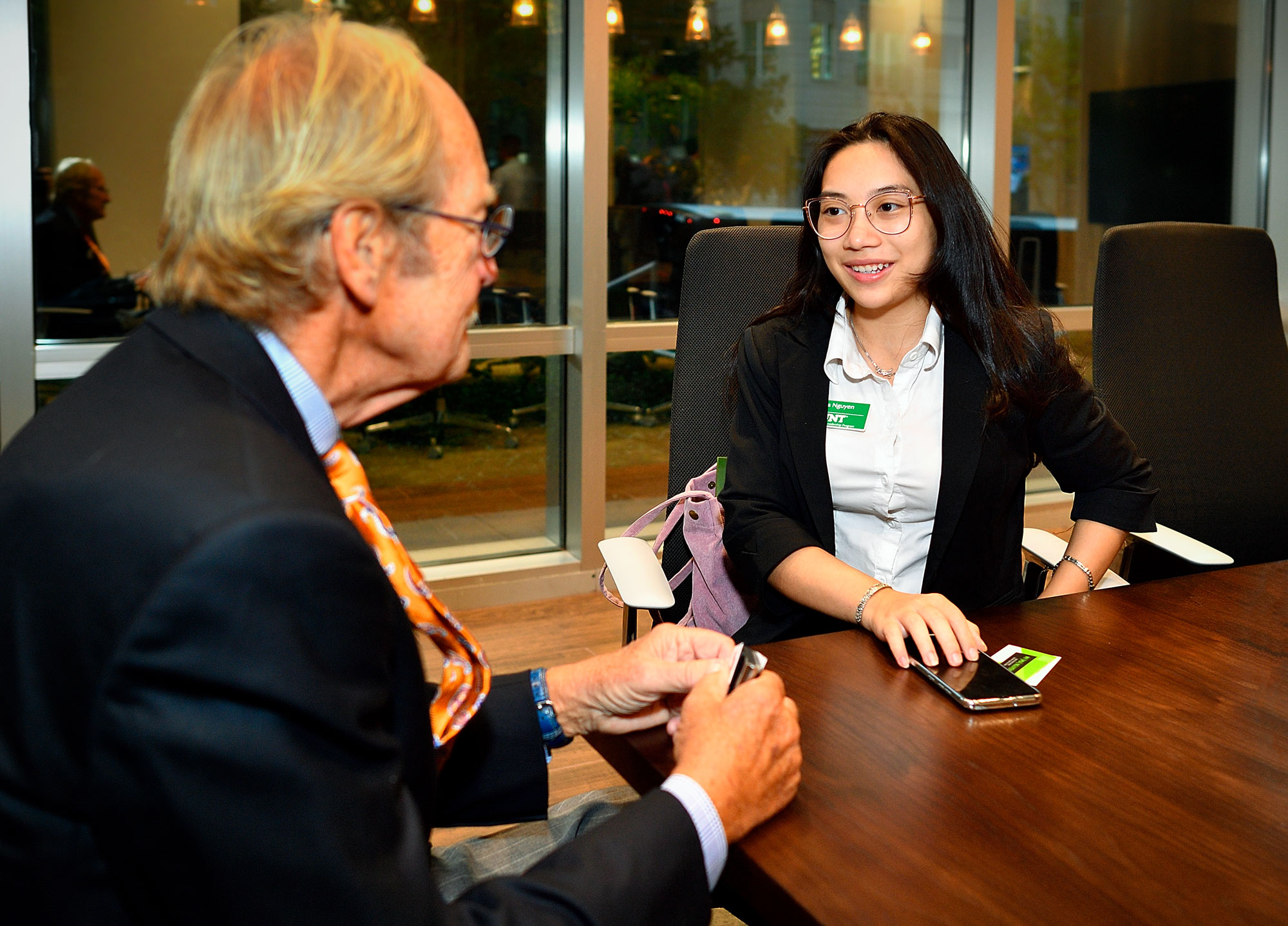Kim Fenneman ('97) was nervous yet thrilled as she walked into the office in her best power suit: a red jacket with black buttons, black skirt and black shoes. It was her first day of her IBM internship, the first corporate job she'd ever had, and the morning was filled with normal introductory activities: She got her picture taken for her badge, filled out some paperwork, then walked around to meet everyone on her floor.
What she didn't realize until after the meet-and-greet was that she was the youngest person on the team. She began at IBM when she was 21, while her coworkers had joined 20-plus years earlier. However, no one treated her any different -- although she was the newest member of the team, Fenneman came prepared with the skills she needed to fit right in.
That was due in large part to UNT's Professional Leadership Program. For the past 25 years, the program has offered leadership development and mentoring to students, as well as internship and job opportunities.
"The Professional Leadership Program helped me, as an introvert, get into the corporate world after college," says Fenneman, who majored in strategic management. "My coworkers had been at IBM longer than I had been alive. So going into a corporate environment like that and knowing how to network with people allowed me to not be as anxious. I felt like I could contribute, even though I was the youngest person on the team. After I graduated from UNT, I was hired on full-time to lead and manage a team. I attribute the growing confidence in my leadership skills to my time in UNT's Professional Leadership Program.”
Fenneman was part of the first PLP class in 1994 with roughly 20 members, when the program was solely for business majors. Now the program, which holds meetings weekly, is open to students of any major.
